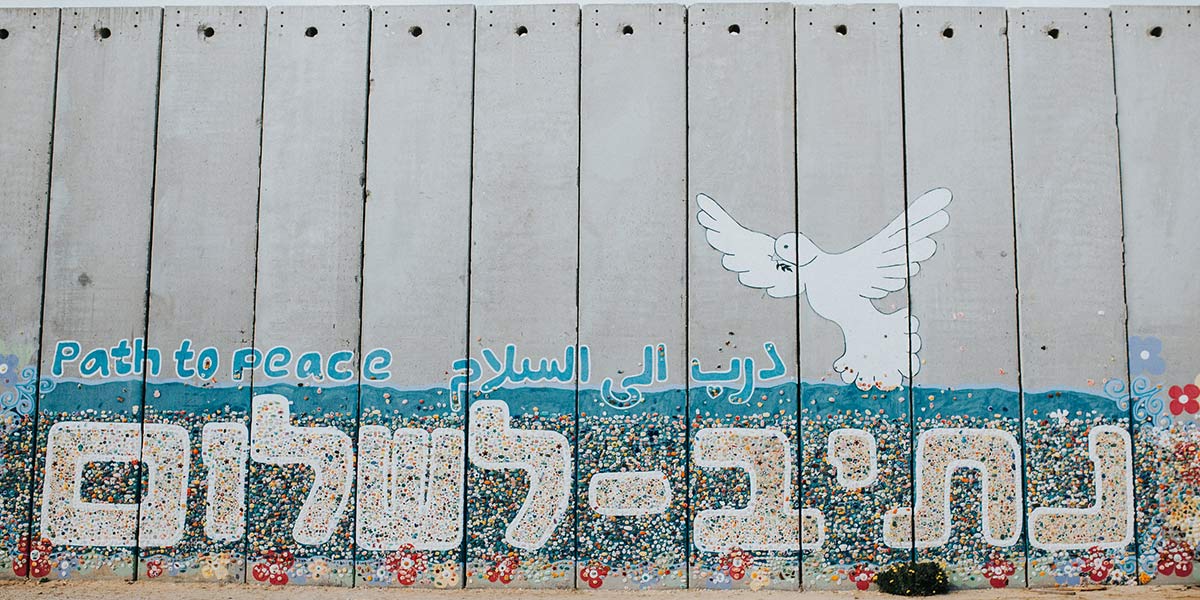Beyond Managing the Israeli-Palestinian Conflict
Demonstrating the Effectiveness of a Social Transformation in Conflict Approach
Client/Funding Agency:
EU Partnership for Peace Program
Duration:
July 2009 – May 2011
Project Objective: The goal of the project was to continue the development of the Kumi Method in a practical environment to demonstrate the effectiveness of this methodological synthesis. This was achieved through training facilitators in Israel and the occupied Palestinian territories, as well as through various workshops involving Israelis, Palestinians, and Europeans.
Initially, a group of 14 Israelis, Palestinians, and Europeans was trained in the new method. These new Kumi practitioners assisted in 14 workshops, initially as support for method experts and gradually as workshop leaders with accompanying supervision.
These workshops aimed to expand the reach of existing Israeli-Palestinian coalitions and to initiate activities on both sides of the conflict line, using their influence to question the structures and cultures that sustain the conflict.
Four workshops were held with Israeli and Palestinian organizations that had previously collaborated. These workshops aimed to extend the reach of existing Israeli-Palestinian coalitions and to establish activities on both sides of the conflict line, utilizing their influence to challenge the structures and cultures that perpetuate the conflict.
Four additional workshops were conducted exclusively with Palestinians. These workshops introduced Palestinian organizations and local communities to the new method and its effectiveness in addressing internal conflicts. The goal was to overcome internal fragmentation to create a favorable environment for the development of empowered leaders committed to autonomous development, addressing the basic needs of Palestinian society, and organizing more effectively. The aim was to overcome internal fragmentation in order to create an enabling environment for the formation of strengthened leaders committed to autonomous development to meet the basic needs of Palestinian society and to organize more effectively.
Another four workshops were held with Israeli participants. The objective of these internal Israeli workshops was to demonstrate how the new method supports the formation of coalitions that can challenge the Israeli security discourse. It was assumed that the current state of the Israeli security discourse was a significant obstacle to efforts to end the conflict.
Two workshops were conducted with Israelis and Palestinians categorized as “hardliners.” One of these workshops brought together moderate Palestinians and right-wing Israelis, while the second workshop brought Palestinian refugees together with moderate Israelis. Europeans also participated in both workshops.
The aim of these workshops was to facilitate critical dialogue between the groups and with third parties (Europeans). The intention was to reflect on the distinction between legitimate and illegitimate goals and to redefine these goals to achieve their needs. The primary task was to show participants that needs are always legitimate, while certain means to achieve these needs can be illegitimate and, in the long term, hinder the possibility of reaching legitimate goals.
The project was managed by the Heinrich Böll Foundation and took place in cooperation with The Palestinian Initiative for the Promotion of Global Dialogue and Democracy (MIFTAH), the Young Israeli Forum for Cooperation (YIFC) and Transform e.V..
